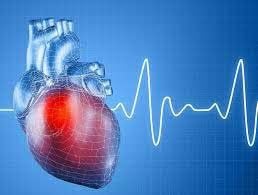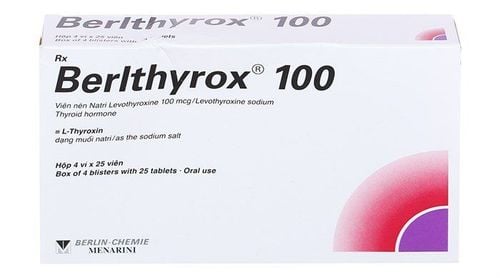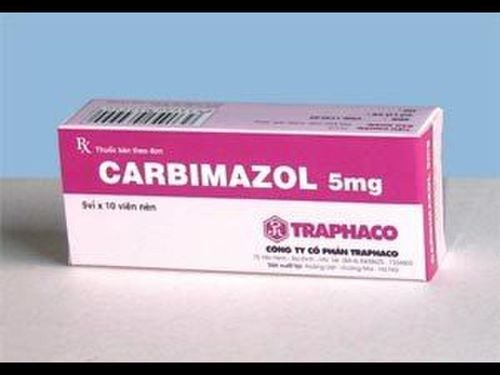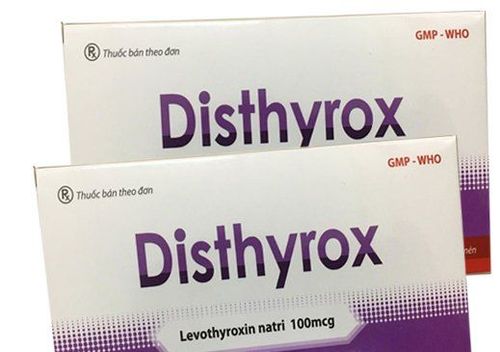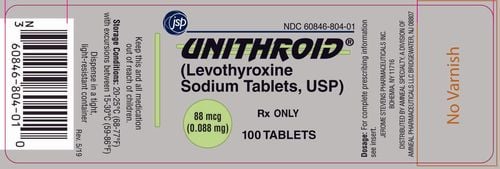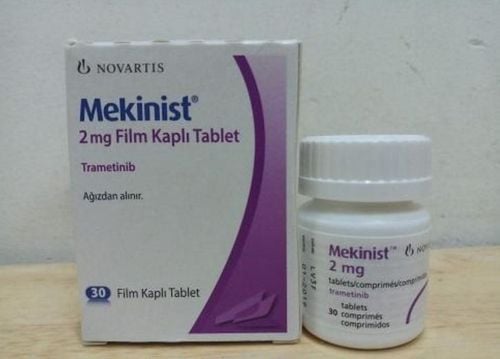This is an automatically translated article.
The article was professionally consulted with General Internal Medicine Doctor - Department of Examination & Internal Medicine - Vinmec Nha Trang International General Hospital.Hyperthyroidism and simple goiter are both characterized by an enlarged thyroid gland. However, differing in thyroid endocrine function, goiter alone does not affect thyroid function, while hyperthyroidism causes thyroid dysfunction affecting organs in the body.
1. Is hyperthyroidism a goiter?
Goiter, also known as goiter, is a common disease of the thyroid gland with a very typical manifestation of a protrusion in the neck region due to an increase in the size of the thyroid gland. Goiters are divided into three groups: benign, cancerous, and thyroid endocrine dysfunction (hyperthyroidism, hypothyroidism). In which, benign goiter is the most common, accounting for 80% of cases.Benign goiters are cases where the thyroid gland increases in size without affecting the function of the thyroid gland. Therefore, benign goiter cases almost do not require surgical intervention. However, when the tumor is too large, causing difficulty swallowing, difficulty breathing, and protruding forward, causing unsightly, surgery can be performed to remove the tumor. Benign goiter is for thyroid enlargement without causing any problems, not causing hyperthyroidism or hypothyroidism, nor cancer.
Hyperthyroidism basedow is an immune system disorder that leads to thyroid endocrine dysfunction which is the overproduction of thyroid hormone (hyperthyroidism). Because thyroid hormones affect a number of different body systems, the signs and symptoms associated with hyperthyroidism can be very broad and significantly affect your overall health. Hyperthyroidism presents with a goiter, but it is not a simple goiter that has its own characteristics.
2. Clinical features of goiter and hyperthyroidism
For simple goiter: patients often have euthyroid status, often due to iodine deficiency, there are epidemiological factors affecting development, especially children with reduced intelligence, cretinism.For a single uniform goiter: a large goiter is found by chance, or another person detects a tumor in the middle of the neck, well-defined palpable, non-adhering to the skin, painless, soft or firm, and movable Swallowing rhythm up and down, when the tumor is large, it can cause compression; There is no murmur at the top of the hump.
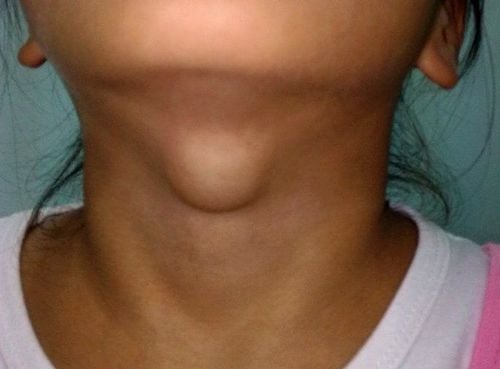
Bệnh nhân bướu cổ thường có tình trạng bình giáp, thường do thiếu iod
Anxiety and irritability A trembling of your hands or fingers Sensitivity to heat and increased sweating or warm, moist skin Weight loss, despite normal eating habits Change in menstrual cycle Erectile dysfunction or decreased libido Frequent bowel movements Protruding eyes (Graves' eye disease) Fatigue Thick, red skin often on the lower legs or top Feet (Graves Dermatology) Fast or irregular heartbeat (palpitations).
3. Diagnosis of goiter and hyperthyroidism
It is possible to diagnose patients with simple goiter or hyperthyroidism through the following methods:Based on clinical symptoms, goiter characteristics Based on paraclinical tests Quantifying thyroid hormone to distinguish: simple goiter Pure thyroid hormone within normal limits, hyperthyroidism with increased thyroid hormone Thyroid ultrasound Thyroid scintigraphy helps to differentiate.
4. Treatment
Simple goiter: Thyroid function is usually not affected. Treatment methods include:Surgical treatment: Minimize surgery because the goiter in this case is large due to compensatory activity, if removed, it is easy to hypothyroidism, especially rarely indicated for diffuse large tumors. However, surgical intervention can be put in place in the following cases: The goiter is too large to cause compression (difficulty swallowing, breathing difficulty, hoarse speech). Perennial goiter is easily cancerous or suspected of cancerous, multinodular goiter. Also for aesthetic reasons. After surgery, must regularly check FT4, TSH to detect hypothyroidism in time. Medical treatment: For goiter caused by iodine deficiency or local goiter: Most have no or very little effect on thyroid function, but the main cause is iodine deficiency, so it is best to put iodine in treatment. and backup. Iodine-Basedow complications should be monitored. Hyperthyroidism: Treatment depends on the individual. The goal of treatment is to stabilize thyroid hormone levels to avoid dangerous complications. There are 3 treatment methods including: Medical treatment, surgical treatment, radiation treatment

Điều trị cường giáp phụ thuộc vào từng cá thể
Specializes in applying new techniques in disease treatment such as: treating benign thyroid nodules with high-frequency ablation (avoiding thyroid surgery for patients). Well-trained and experienced medical team:
Associate Professor, Doctor, Doctor Nguyen Thi Hoan Associate Professor, Doctorate, Doctor Chu Hoang Van Master, Doctor Pham Thi Thu Huong Thac Doctor, Doctor Bui Minh Duc Doctor Nguyen Ngoc Son Doctor, Doctor Pham Thi Hong Hoa Master, Doctor Nguyen Thi Cam Tu
Please dial HOTLINE for more information or register for an appointment HERE. Download MyVinmec app to make appointments faster and to manage your bookings easily.




